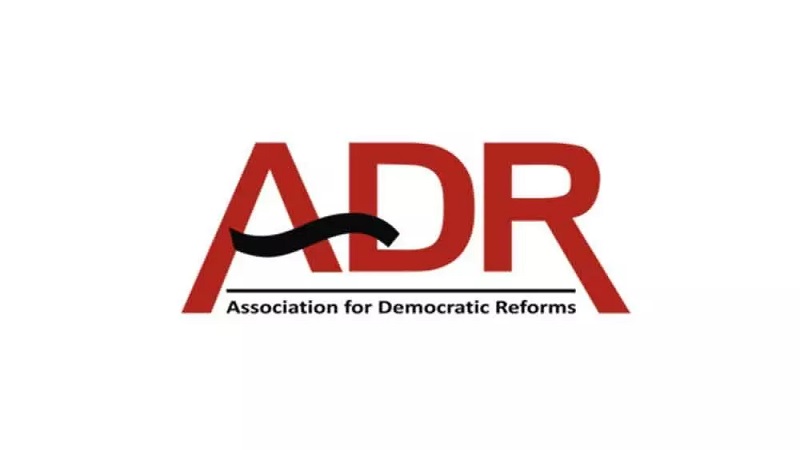 Image Courtesy:thehansindia.com
Image Courtesy:thehansindia.com
National and regional political parties failed to declare details of financial institutions, banks or agencies whose loans were availed, said the Association for Democratic Reforms (ADR) in an assets and liabilities analysis report for FY 2018-19.
The report titled Analysis of Assets and Liabilities of National & Regional Parties – FY 2018-19 was published on March 18, 2021. According to the data, seven national and 41 regional parties declared assets worth Rs. 5,349.25 crore and Rs. 2023.71 crore respectively during the FY 2018-19.
Among national parties, the ruling Bharatiya Janata Party (BJP) declared the highest assets amounting to Rs. 2,904.18 crore (54.29 percent) followed by the Indian National Congress party (INC) with assets worth Rs. 928.84 crore (17.36 percent). The Bahujan Samaj Party (BSP) declared assets worth Rs. 738 crore (13.80 percent).
Similarly, the Samajwadi Party (SP) declared the highest assets worth Rs. 572.21 crore (28.28 percent) among regional parties. Next in rank was the Biju Janata Dal party (BJD) with assets worth Rs. 232.27 crore, and the All India Anna Dravida Munnetra Kazhagam party (AIADMK) declared assets worth Rs. 206.75 crore.
As per ICAI guidelines, details of fixed assets received as donation should be declared. Such as original cost of the asset, additions, deductions, depreciation written off, cost of construction, etc. The same should also be declared of fixed assets purchased by the political parties but not all Political Parties declared this information.
Meanwhile, total liabilities of all parties together amounted to Rs. 213.231 crore. These liabilities fall under two categories: borrowings (from banks, overdraft facilities and sundry creditors) and other liabilities.
According to the report, national parties declared Rs. 123.40 crore (57.87 percent) under other liabilities and Rs 89.831crore (42.13 percent) under borrowings. The INC declared highest total liabilities of Rs. 78.415 crore (58.75 percent) followed by the BJP that declared Rs 37.463 crore (28.06 percent) liabilities.
Regional parties declared total liabilities of Rs. 79.751 crore in FY 2018-19 with Rs. 47.181 crore under borrowings, and Rs. 32.57 cr under other liabilities. The Telugu Desam Party (TDP) declared highest total liabilities of Rs. 18.10 crore (22.696 percent) followed by the Janata Dal (Secular) Party (JDS) that declared Rs 18.01 crore (22.583 percent).
As per guidelines, parties should state the “terms of repayment of term loans” on the basis of due date such as a year, 1-5 years or payable after 5 years. Yet again, not all participants declared details of loans given by them in cash or kind.
As for the total Capital/Reserve Fund set aside by national and regional parties, they declared Rs. 5,215.77 cr and Rs. 1,943.976 cr respectively. The BJP declared the highest capital of Rs. 2,866.717 crore followed by the INC with Rs. 850.426 crore and the BSP with Rs. 735.77 crore. The lowest capital was declared by the Communist Party of India (CPI) with Rs. 24.87 crore followed by the Nationalist Congress Party (NCP) with Rs. 31.05 crore.
Meanwhile, SP declared the highest capital of Rs. 571.70 crore among regional parties followed by Rs. 223.85 crore by BJD and Rs. 206.708 crore by AIADMK.
To ensure uniformity in the auditing practices of political parties, the ADR recommended regular change in auditors every three years in accordance with the amended Companies Act, 2013.
“Once a firm/person is responsible for auditing accounts of political parties for a long duration, there is a possibility that finances of parties could be made as opaque as possible… This becomes a worrisome factor if the domestic firm is auditing Indian parties’ accounts. By having no provision to change auditors frequently, foreign companies might have a bird’s eye view of the parties’ internal accounting,” said the report.
It recommended accounts should be “audited by a qualified and practicing Chartered Accountant from a panel of such accountants maintained for the purpose by the Comptroller and Auditor General.” This is in contrast with the current practice where parties choose their auditors.
The ADR also suggested annual scrutiny of party documents because their income-expenditure statements are rarely assessed. When the authenticity is not verified, auditors who might be under-reporting the accounts, remain out of purview of punishment. With online submission of IT Returns, parties do not submit details of income, expenditure and assets and liabilities as attachments. Thus, the IT department too does not have enough information on finances.
Further, it talked about the 170th Law Commission report that proposed penalties for political parties defaulting in the maintenance of accounts.
“Supreme Court had stated that when parties default in filing their returns, prima facie they violate provisions of the IT Act. For FY 2018-19, Audit Reports of major Regional Parties such as JKNC, NPP among others are unavailable on the website of the ECI. In case of National Parties, 4 parties namely NCP, BJP, INC and CPI delayed the submission of their audit reports by 5 to 42 days,” said the report.
The entire Analysis of Assets and Liabilities of National & Regional Parties – FY 2018-19 may be read here:
Related:
23 Surat election candidates declare serious criminal charges against themselves: ADR report
The EVM Conundrum: Concerns over EVMs not invalid, must be addressed
Support grows for Migrant Workers’ Right to Vote
15 UP bye-elections candidates charged with serious criminal cases: ADR
